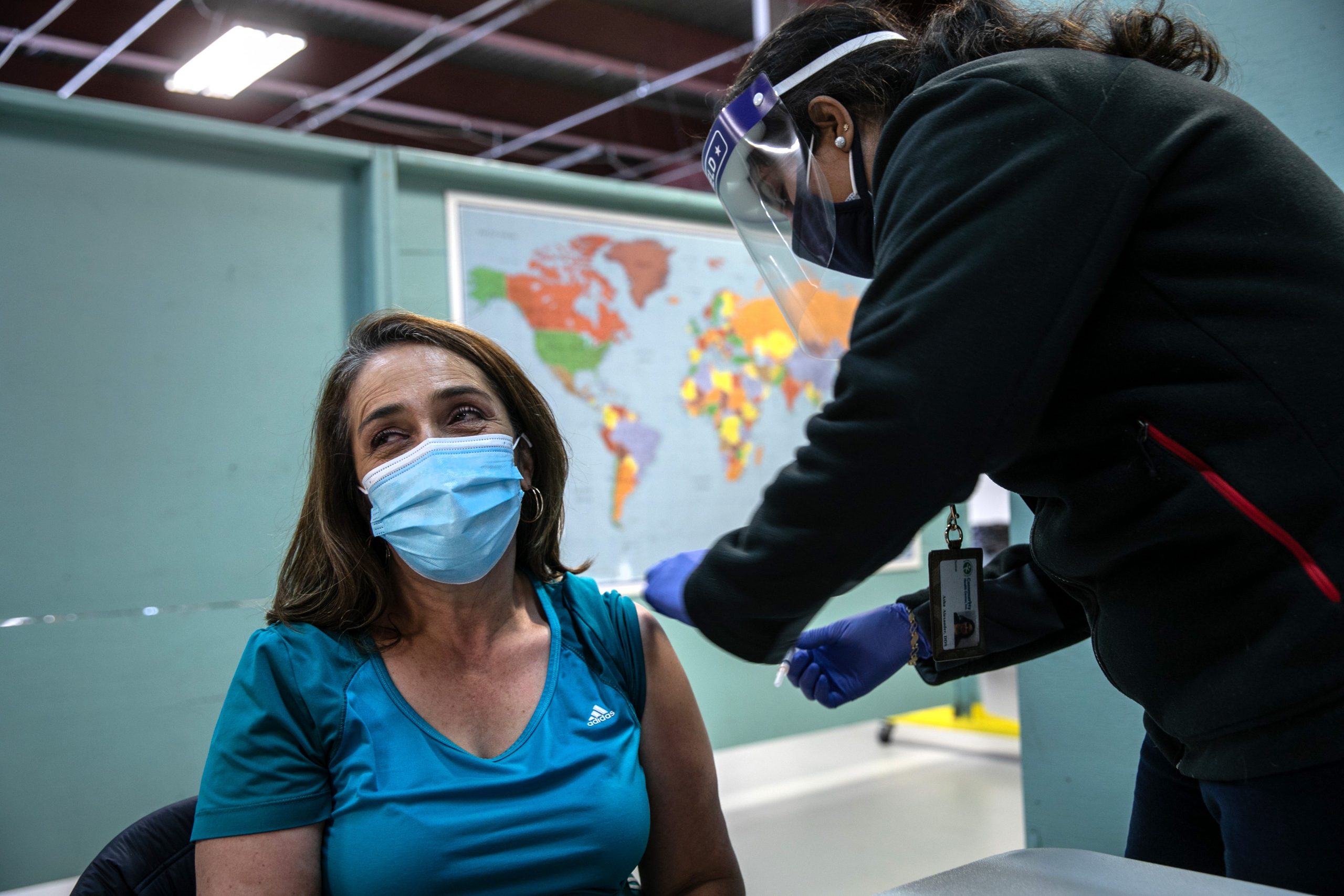
John Moore/Getty Images
- Bolthouse Farms is paying full-time hourly workers a $500 bonus to get the COVID-19 vaccine.
- So far, 1,100 California employees out of 1,800 have signed up for the shot.
- Before the $500 bonus, Bolthouse paid staff an extra $100 for being essential workers during the pandemic.
- See more stories on Insider's business page.
Jeff Dunn, CEO of Bolthouse Farms, is offering his full-time hourly employees $500 to get a COVID-19 vaccine, the Wall Street Journal first reported Sunday.
Bolthouse employees must submit a photo of their vaccination cards to the company after they've had their shot to receive the bonus, the Journal reported.
The California-based company, known for its smoothies and dressings, has poured tens of millions of dollars into COVID-19 safety measures, including testing, protective clothing, paid time off, and staff cover for anybody who is self-isolating, Dunn told the Journal.
Bolthouse also hosts vaccine events weekly at its main plant in Kern County to deliver shots on-site, Dunn said.
Dunn said his philosophy was to "go bigger now because it gives us the best chance at reaching herd immunity quickly."
Before the $500 incentive for a COVID-19 shot, Bolthouse paid its full-time hourly workers an extra $100 every week for their role as essential workers during the pandemic. This stopped once the vaccine bonus was introduced, Dunn said.
Workers at Bolthouse are a priority group for getting shots because it is a food and agriculture company, and it has secured shots for all its California essential workers, Dunn said.
The company has about 1,800 hourly workers at its Kern County plant, and 1,100 have signed up for the vaccine, the Journal reported. So far, 475 employees have received at least one shot.
The company also employs about 300 office workers in the area.
Bolthouse hopes to reach "herd immunity"
The company estimates that between 1,300 and 1,400 workers at the plant need to be vaccinated to reach "herd immunity," which is when immunity in a population, either through vaccination or infection, stops a virus spreading and gives protection to the group.
Company executives told the Journal that it was difficult to know when Bolthouse would reach herd immunity because vaccine supply - and vaccine hesitancy amongst employees - was always fluctuating.
Dunn said the company was expecting a certain level of reluctance, because about 80% of its workforce is Latino. Some polls have suggested that Latino people are more likely to be hesitant about getting vaccines, because of skepticism and mistrust of the US health system, triggered by historical injustices.
Bolthouse started teaching staff about COVID-19 in tents in its plant parking lot before it offered the vaccine on-site, Dunn said.
"You just gotta reach out and help people and understand their concerns," he said. He hoped that there would be a chain reaction once employees start seeing colleagues get immunized safely at work, he added.
Dunn also told staff that some aspects of work would be easier if herd immunity is reached on the plant, the Journal reported.
